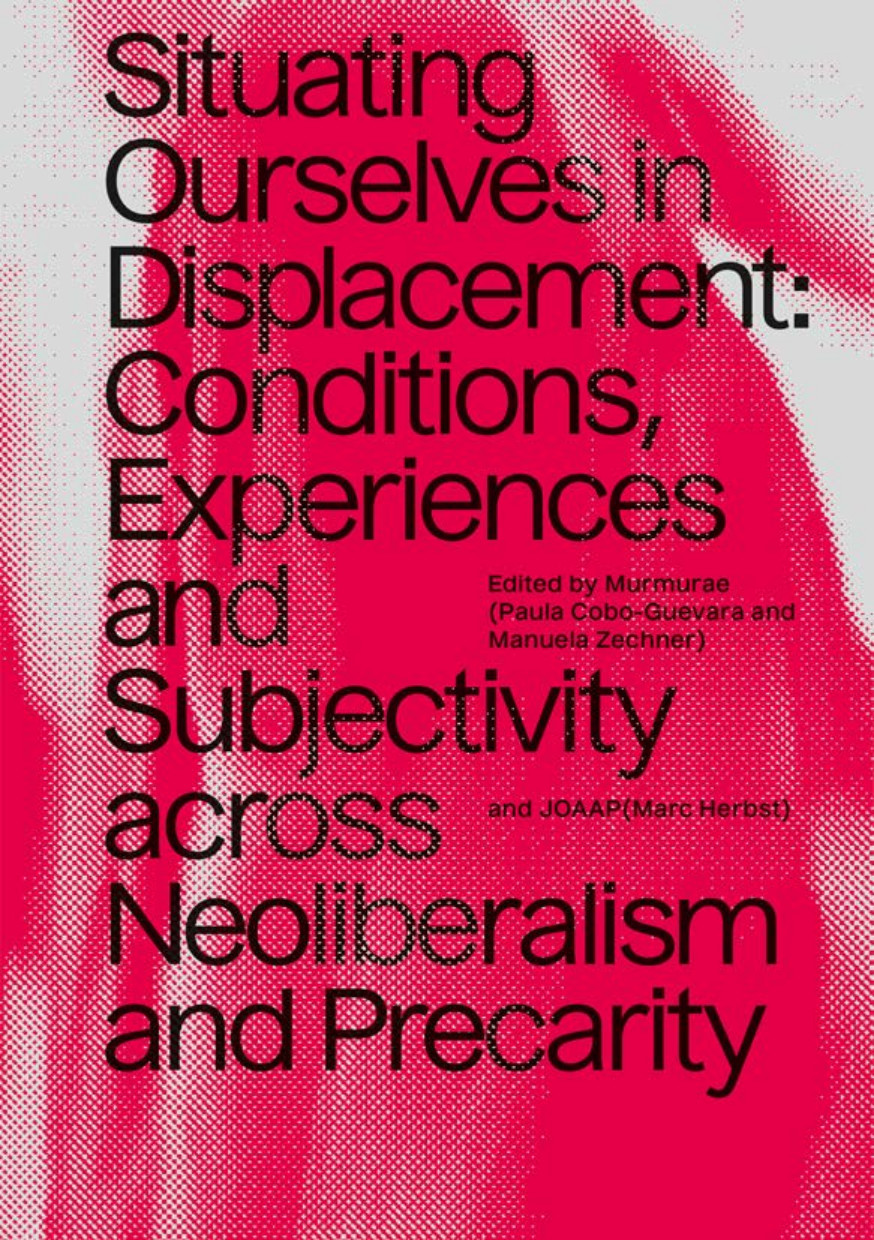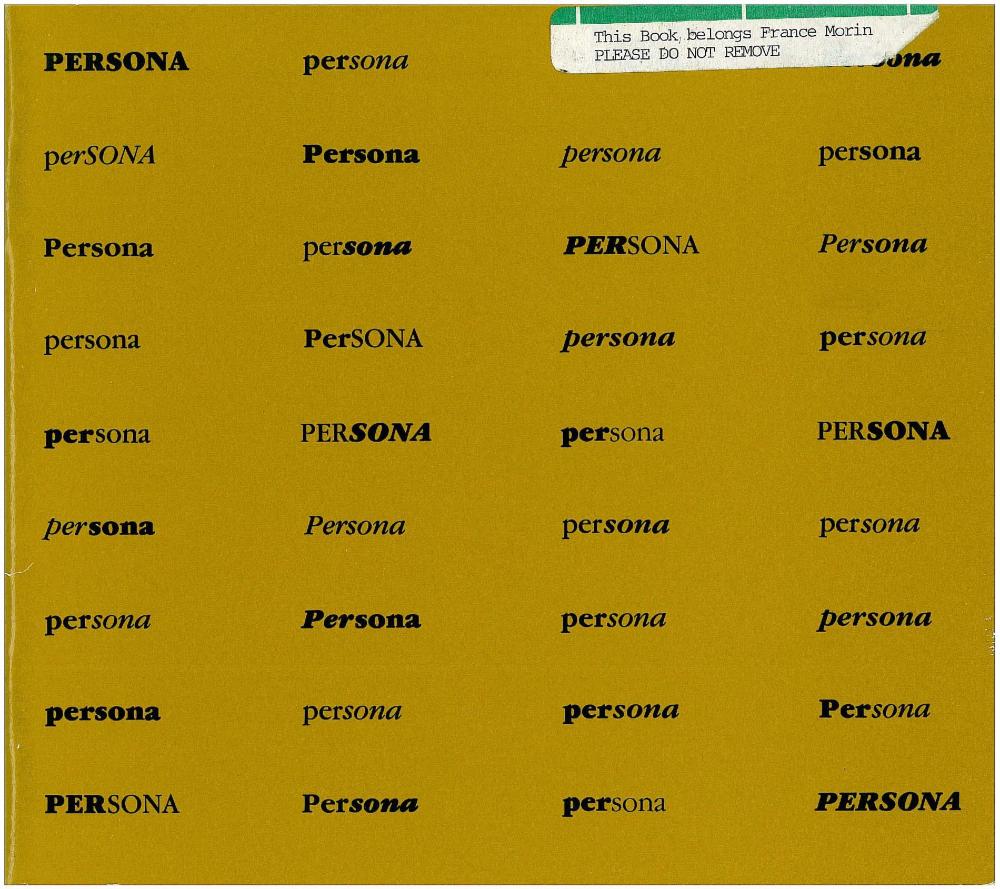Murmurae, JOAAP (eds.): Situating Ourselves in Displacement: Conditions, Experiences and Subjectivity across Neoliberalism and Precarity (2018)
Filed under book | Tags: · displacement, neoliberalism, precarity, presence, subjectivity

“Displacement is a key paradigm of our time, for who can afford not to move, to shift, to change, to develop and improve – or to be moved, shifted, displaced? Situatedness is a key condition for solid and sustainable practices, in politics, arts, research or otherwise. Yet situatedness is not something we can take for granted today. What is the meaning of situatedness within displacement?
In this book we address conditions, experiences and subjectivity as shaped by the tension(s) between displacement and situatedness. Neoliberalism and precarity are the main contexts we depart from in developing concepts, tools and tactics that stem from our collective and individual lives.
What do politics and ethics mean in the context of frequent displacements? How do we understand and give account of our positionality and trajectory as itinerant subjects? What tools do we have for orienting ourselves in new contexts, for mapping out stakes, problems and possibilities of relating?”
With contributions by Alan Moore, Amit S. Rai, Bue Rübner Hansen, Claire English, Claudia Delso, Cristina Ribas, Esquizo Grupo Barcelona, Jara Rocha, Julius, Laura Lapinskiene, Manuela Zechner, Marc Herbst, Ninaha, Sara Larsdotter Hallqvist, and Paula Cobo–Guevara.
Edited by Paula Cobo Guevara and Manuela Zechner (Murmurae) and Marc Herbst (Journal of Aesthetics & Protest)
Publisher Journal of Aesthetics & Protest Press, Leipzig, and Minor Compositions, Colchester, 2018
Creative Commons BY-NC-SA 4.0 International License
ISBN 9781570273230
224 pages
Michael Hardt, Antonio Negri: Assembly (2017)
Filed under book | Tags: · activism, assembly, autonomy, colonialism, commons, democracy, entrepreneurship, finance, labour, multitude, neoliberalism, organization, politics, protest, social movements, subjectivity

“In recent years ‘leaderless’ social movements have proliferated around the globe, from North Africa and the Middle East to Europe, the Americas, and East Asia. Some of these movements have led to impressive gains: the toppling of authoritarian leaders, the furthering of progressive policy, and checks on repressive state forces. They have also been, at times, derided by journalists and political analysts as disorganized and ineffectual, or suppressed by disoriented and perplexed police forces and governments who fail to effectively engage them. Activists, too, struggle to harness the potential of these horizontal movements. Why have the movements, which address the needs and desires of so many, not been able to achieve lasting change and create a new, more democratic and just society? Some people assume that if only social movements could find new leaders they would return to their earlier glory. Where, they ask, are the new Martin Luther Kings, Rudi Dutschkes, and Stephen Bikos?
With the rise of right-wing political parties in many countries, the question of how to organize democratically and effectively has become increasingly urgent. Although today’s leaderless political organizations are not sufficient, a return to traditional, centralized forms of political leadership is neither desirable nor possible. Instead, as Michael Hardt and Antonio Negri argue, familiar roles must be reversed: leaders should be responsible for short-term, tactical action, but it is the multitude that must drive strategy. In other words, if these new social movements are to achieve meaningful revolution, they must invent effective modes of assembly and decision-making structures that rely on the broadest democratic base. Drawing on ideas developed through their well-known Empire trilogy, Hardt and Negri have produced, in Assembly, a timely proposal for how current large-scale horizontal movements can develop the capacities for political strategy and decision-making to effect lasting and democratic change. We have not yet seen what is possible when the multitude assembles.”
Publisher Oxford University Press, 2017
Heretical Thought series
ISBN 9780190677961, 0190677961
xxii+346 pages
Reviews: Publishers Weekly (2017), Christian Fuchs (triple-C, 2017).
Comment (0)Persona (1981)
Filed under catalogue | Tags: · anonymity, art, body art, narrative, performance, subjectivity

Features the work of nine artists who, in making or presenting their work, assume specific alter-egos or personae (human or animal, fictitious or historical) that serve as vehicles for greater freedom of expression. With essay by the curators Lynn Gumpert and Ned Rifkin, and artists’ statements.
Artists: Eleanor Antin, Mr. Apology, Colin Campbell, Bruce Charlesworth, Colette, Redd Ekks, Lynn Hershman, James Hill, Martial Westburg.
Preface by Marcia Tucker
Publisher The New Museum, New York, 1981
57 pages
via New Museum

